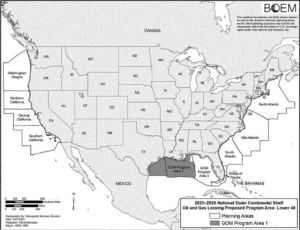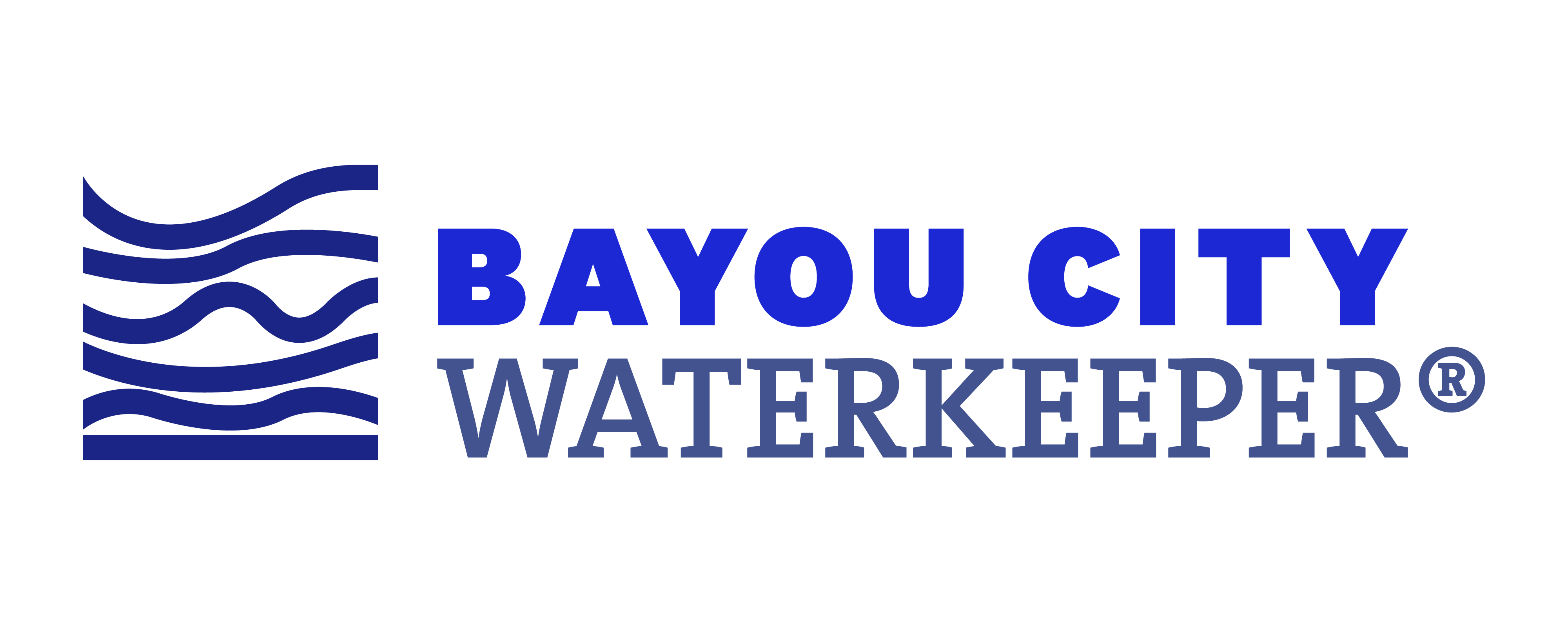
Our Legal Director and Waterkeeper Kristen Schlemmer joined more than 100 community members and advocates calling on the Bureau of Ocean Energy Management to authorize no new oil and gas leases as part of the 2023-2023 National Oil and Gas Leasing Program.
On July 1, 2022, the Department of Interior released its proposed Five Year Plan for the 2023-2028 National Outer Continental Shelf Oil and Gas Leasing Program. The draft program proposed up to 10 potential leases in the Gulf of Mexico as depicted in the map included in the Federal Register included here. Offshore drilling poses huge risks to the health of communities, workers, wildlife, and the climate. That’s why community-led organizations in the Gulf and Alaska, along with allied national environmental organizations, are united in their call to the Biden administration: No New Leases.
Read Kristen’s testimony below.
My name is Kristen Schlemmer, I’m the Legal Director and Waterkeeper for Bayou City Waterkeeper in Houston, Texas, and I’m here today to urge you to include no new leases in the 2023-2028 National Oil and Gas Leasing Program.
Houston, and the broader Gulf region, has been unfairly burdened by the oil and gas industry for far too long – by air and water pollution and health risks, and more recently by climate risks worsened by the continued existence of this damaging industry.
This isn’t just where I work – this is my home. As someone who was born here and spent most of my life here, with only two minutes to speak, I struggle to know where even to begin. My first memory is a hurricane. I could talk about water pollution for hours. I could talk about heightened cancer risks across the Gulf, entire communities sinking into the earth from the oil and gas industry’s historical groundwater extraction. That time my car flooded in a burst of rain on an otherwise sunny day. Seeing so many move here after Hurricane Katrina. Watching Deepwater Horizon unfold when I was finishing law school in New Orleans. The brutal cold of Winter Storm Uri.
I’m going to jump into 2017. That’s when Hurricane Harvey shut down my city. With more than $125 billion in damage and incalculable human impacts, Harvey tied with 2005’s Katrina for the nation’s most ravaging in economic terms. This hurricane isn’t just one moment in time. We can’t view it as an anomaly. Harvey is a warning. It offers us a very real view into how climate change will continue to slam local communities if we don’t act. We know this – and international bodies consistently tell us – rapidly shifting away from fossil fuels is a key strategy for reducing greenhouse gas emissions.
And here in Houston we’ve been trying to act. Since Harvey in particular, across the greater Houston region, communities have worked together to recover and forge a new path forward. We’ve worked together to center equity and create new visions for our region. We’ve worked together to champion policies that will increase flood investment in areas that have historically been left behind and make more people safe during major storms. All this work will mean nothing if the federal government continues to give oil and gas development a free pass.
It cannot be disputed that continued oil and gas leasing will spur extraction, production, and development that will increase climate risks and affect communities most burdened by flooding across the greater Houston region and along the Gulf coast. I ask the Bureau not to move forward with any new lease sales in its five-year plan.
